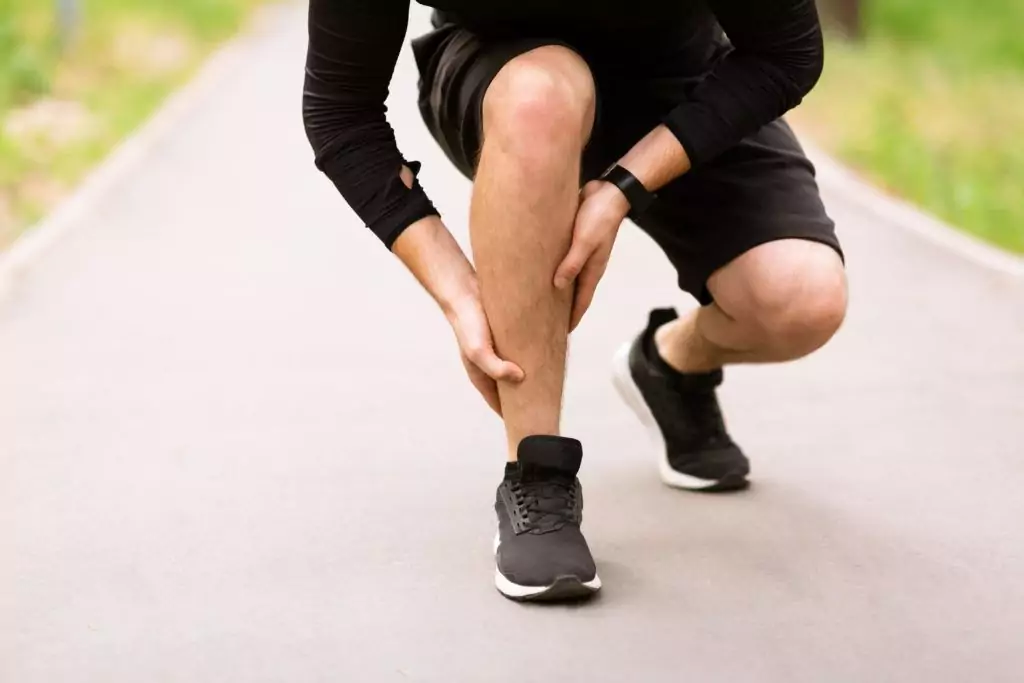Tight calf muscles are an issue with many people. They can affect the health of your feet adversely resulting in changes in your walking and general functioning.
The tightness can cause pain and injury to your ankle, knee, and foot preventing you from enjoying your favourite activities.
Tight calves affect the distribution of your body weight which exerts pressure to other parts of the body.
Tight Calves and Foot Pain
Your calf mainly consists of two muscles – the gastrocnemius and soleus. The gastrocnemius muscle traverses across three joints namely the subtalar joint, knee, and ankle. This muscle is linked to numerous foot and ankle issues.
The muscles facilitate moving/walking from one place to another. Additionally, they aid in other activities, most of which are strenuous. When these muscles lack agility, they affect the normal functioning of your feet, thus leading to injury and discomfort.
The forefoot can be painful for various reasons. The most common reasons for these are attributed to your lifestyle. The kind of footwear you chose to adopt, deskbound work life, and increased impact situations are just examples of modern lifestyle causes.
Sedentary work life and relatively high shoes can reduce the agility of the leg muscles leading to reduced “dorsiflexion” (bending the foot upward). Tight calf muscles tend to be more pronounced and painful/stiff during morning hours due to muscle tightening overnight. When this muscle is rendered tight consistently it affects the timing and reaction of the movement in the ankle joint. This results in alteration in natural movement and affects the ability of your foot to pull up (dorsiflexion).
Different Types of Foot Pain
The majority of foot pains are related to tight calf muscles. The gastrocnemius and the soleus muscles meet at the Achilles tendon which connects directly to the heel. Calf pain may vary depending on the individual. In more severe instances the following symptoms may appear:
· Pale colour on the calf
· Numbness or tingling
· Swelling
· Leg weakness
· Fluid accumulation
· Tenderness
Common Types Of Foot Pains
Here are some of the most common types of foot pains;
Muscle Cramp
Muscle cramps are abrupt and excruciating contractions of most of the leg muscles. Some may last longer but most come in briefly. This pain is really common and is mostly a result of excessive exercising. Other causes may be dehydration, mineral deficiencies, and injuries to the muscle.
Achilles Tendonitis
This is a condition characterised by pain at the back of the leg, inflammation, and limited flexibility when moving your leg. The condition is caused by strain, stress, overuse of the Achilles tendon probably during exercise or even normal activities.
Sciatica
Sciatica is a condition associated with an affected sciatic nerve. The nerve is in control of the muscles in the lower leg and the back of the knee. This can cause numbness, tingling, and pain at the lower part of your back stretching down to the calf and other muscles.
Plantar Fasciitis
This is described as pain at the bottom-most part of your heel. Tight calf muscles result in a pulling /stretching situation. This causes the Achilles tendon to overstretch to accommodate the stride. If this is not treated or rehabilitated, the result is plantar fasciitis among other injuries such as ankle sprains.
Muscle Strain
The main cause of muscle strain is excessive exhaustion, over and improper use of the leg muscle. When you begin a new workout schedule or even increase the intensity of the workout with heavy leg involvement, you are likely to experience these muscle strains. Activities such as swimming, biking, and running can cause this condition.
Tight Calves Remedies That Improve Foot Health
Treatment and rehabilitation of calf pain are solely dependent on the major cause, however, most of them can be addressed at the convenience of your home. In more severe cases, you should consider reaching out to your Toronto custom foot orthotics specialists and finding a solution that suits you perfectly. For minor cases, here are some home remedies for calf pain relief.
· Stretching: Proper stretching after a rigorous activity is very crucial. Light stretches such as calf raise, straight calf stretches, and the downward-facing dog can ease the pain of the calf muscle.
· Medications: Painkillers such as ibuprofen can soothe pain effectively and allow muscle relaxation
· R.I.C.E: These initials stand for rest, ice, compression, and elevation. Icing and elevation are very handy for calf pain. Elevating your leg above the level of your heart reduces swelling. The application of ice every 20 minutes’ eases the swelling and enhances relaxation.
